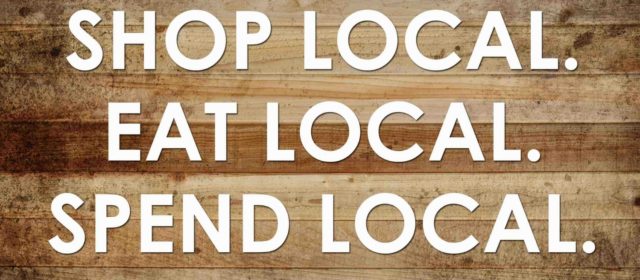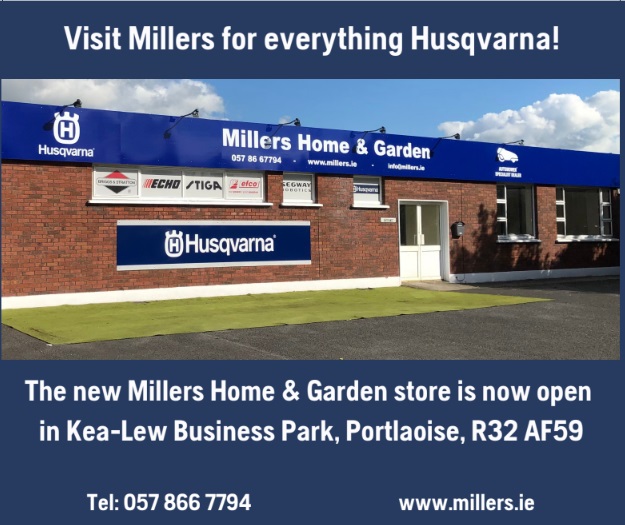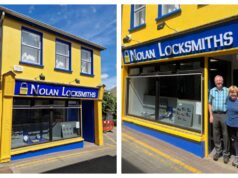How much is that doggie in the window?
The one with the waggly tail
How much is that doggie in the window?
I do hope that doggie’s for sale
(Patti Page, 1953)
Thanks to the committed work of animal welfare groups we all know by now that the purchase of a puppy as a Christmas present is not to be taken lightly.
There are lifetime consequences. Even in dog years, that’s a long time. The same goes for engagement rings, they are not just for Christmas you know, and if you don’t, well the morale in both cases is that it could be a dog’s life all round.
There are those who believe that the real spirit and story of Christmas has become overwhelmed and overshadowed by the consumerism and consumption of the season, but that’s Fr Paddy’s department to save your soul. Wired with Whelan are concerned with more mundane matters – the economic and social consequences of your purchases, not just at Christmas, but all year round.
Now please don’t adjust your sets. This does concern you and it is interesting, I promise.
Because, not just your temptation to surprise the kids with a cuddly puppy or the one you cuddle with an engagement ring, but all your purchasing decisions have an impact and importance that ripples through your town and community, every day of the year.
If I am sounding like a used car salesman, relax, I’m not in retail and I’m not trying to flog you anything.
But while we are on the subject of used cars, did you know that in 2017 the stats just in show that we imported 93,454 used cars here from the UK. That’s having a serious impact not only on the sale of new motors here, down 10% last year.
But it isn’t just hitting the garages. It is also putting serious downward pressure on the value and trade-in value of your second hand motor. There are no real winners here except the British dealers dumping their second hands onto the Irish market, with the help of those who buy them, naively believing that they too are getting a bargain. Well good luck with that when something goes wrong with it …
However, our concern here is not just about the dumping of second hand cars on the Irish market by a UK motor trade desperately scrambling to offset their own plummeting car sales due to a flat-lining economy, Brexit jitters and a weak Sterling.
This is a phenomenon that is spreading to other sectors and egged on by the Euro-Sterling currency exchange rate advantage, cross-border shopping is back in vogue.
Add that to the daily splurge and increasingly popular trend for shopping online and stores, shops and businesses across the country have a real problem on their hands.
In yet another red flag on this mass migration of shoppers, custom & excise returns to Revenue were down by as much as €300m in Q3 of 2017. The figures for the last quarter of the year are likely to accentuate that issue. People are flocking to Belfast to shop and some fear that a hard Brexit could put businesses along the border on something akin to a retail Titanic.
Last Saturday in his Irish Times column, popular economist, David McWilliams gloatingly proclaimed: “Choosing to shop in the North makes you richer.”
I like McWilliams. His work is engaging and entertaining. He has done for economics what David Attenborough has done for nature programmes. However, with McWilliams you also get a great deal of suspect conjecture and speculation masquerading as economic science.
But like any stopped clock he will be right twice a day. In his Irish Times article he goes on to use a dodgy version of the Big Mac Index, The Pint of Guinness Index, to shore up his proposition. Although his price of the pint (internationally) analogy is deeply flawed, much worse is that he uses it to feed in to the simplistic conclusion that shopping North is not only good for you, but for everyone else as well, and the economy as a whole. This is pure sh**e!
Essentially the problem with the so called cheaper pint in Portadown is that you have to be in Portadown to get it. But that discussion is for another day as McWilliams goes on to make much grander and far more damning conclusions:
“It is an act of economic self-harm not to shop in the North. If you could do all your shopping in the North you could raise your disposable income by 30 per cent,” he wrote.
“The benefits to the whole country of using the North as a ‘constitutional Lidl’ – a bargain basement a few miles up the road – would be huge. Retailers in the Republic would almost certainly say that deserting the expensive South for the cheap North would destroy retail in the South. Granted, there would be some casualties, but more likely retail in the Republic would simply evolve.
“Irish retail has never been destroyed by a 30 per cent increase in the disposable income of the Irish consumer.”
McWilliams fanciful proposition is deliberately provocative as it has no other redeeming features. It is not only wholly inaccurate but it goes on to fuel the myth that if you do ALL your shopping up North, you will be 30% better off – and therefore have that 30% surplus to spend in and to boost the Irish economy.
Of course his theory assiduously ignores the hassle of the time, fuel, tolls, bank charges and perhaps an overnight stay eating in to your new found ‘profit’ margin on selected goods – namely cigarettes, beer and cars – where the price differential is largely made up of Government imposed taxes rather than any embedded long-term currency exchange differentials.
In broader terms the cost of our purchases anywhere are far more than just the price point on the day. There is the primary issue of jobs.
Jobs for you, your family, friends and neighbours. There are 282,000 employed in 37,400 small businesses in every town and village in the country, many of them family run concerns. Collectively they make up the largest private sector employers and contribute a €7 billion tax take to the exchequer annually.
On a more familiar level I do recall growing up in Monasterevin where along with my brothers and sisters and all other families alike we did our stint working part time in local businesses in the evenings and on summer holidays for pocket money, school books, college fees and so on.
From picking fruit in Parkinsons, to working on the buildings for Noel Kelly and Christy McCormack, later on for Noel in his shop, Tynan’s Pub where I tried the patience of those brilliant barmen brothers, Johnny and Noel Kaye (fairly nifty forwards for Ballykelly they were too) and some great memories from my days in the Hazel Hotel, where Willie Guing was an awesome chef and the horsey set would flock following the evening meetings up and down the country.
Contrary to McWilliams contention, it is in fact economic suicide not to shop locally. (By the way, the next time you are looking for a set of jerseys, a bit of sponsorship for the local club or school, you can ask David McWilliams where you will get that ‘up North’).
That’s just the half of it. In a pincer like movement there is a twin threat to Irish retail which is even more worrying than the temporary appeal of the Northern lights. Online shopping is not going away you know.
My erstwhile colleague, the formidable Lorraine Higgins, now an executive with Retail Excellence Ireland has a mesmerising array of figures at her fingertips which make for worrying reading if you are in retail. To the question, ‘Where are you spending Christmas’, the new answer seems to be, ‘Online’.
Retail Excellence Ireland conservatively estimate that €14 million a day is being spent online by Irish consumers who are being aggressively targeted by UK companies with strong social media and online platforms but with no physical presence or employees based in Ireland.
Of the €850k being spent online every hour here, two thirds of it is leaving the country. They forecast that this year EU consumers will spend a staggering €602bn online. 84% of all Irish consumers will be purchasing frequently online by 2020.
I am not extolling some pious puffed up parochial patriotism here as this avalanche of data dictates that Irish businesses have to get the finger out and get with it for multi-channel retail. Not being online in tandem with your physical shopfront and footprint is not an option. As it stands, of the Irish businesses that do actually have websites, three quarters of them do not fully function for e-commerce and process payments. The North is not Irish retails only battlefront.
Money was made round to go round. What goes around, comes around.
Happy new year, good health and good luck with all your plans in 2018. But shop locally, when you can – we’ll all be better off in the long run.
SEE ALSO – Wired with Whelan: On the contrary, we do need an election

























